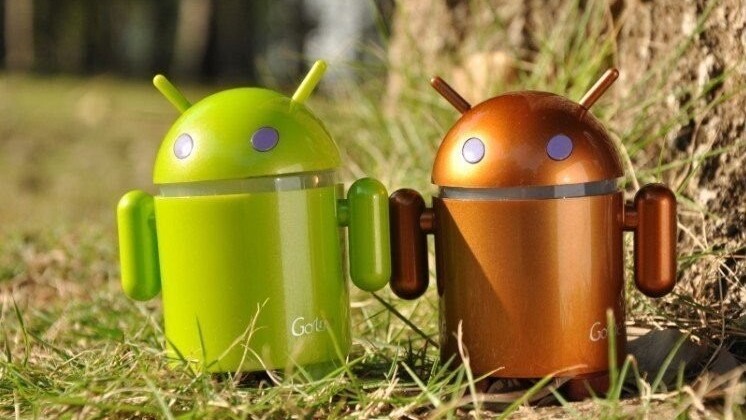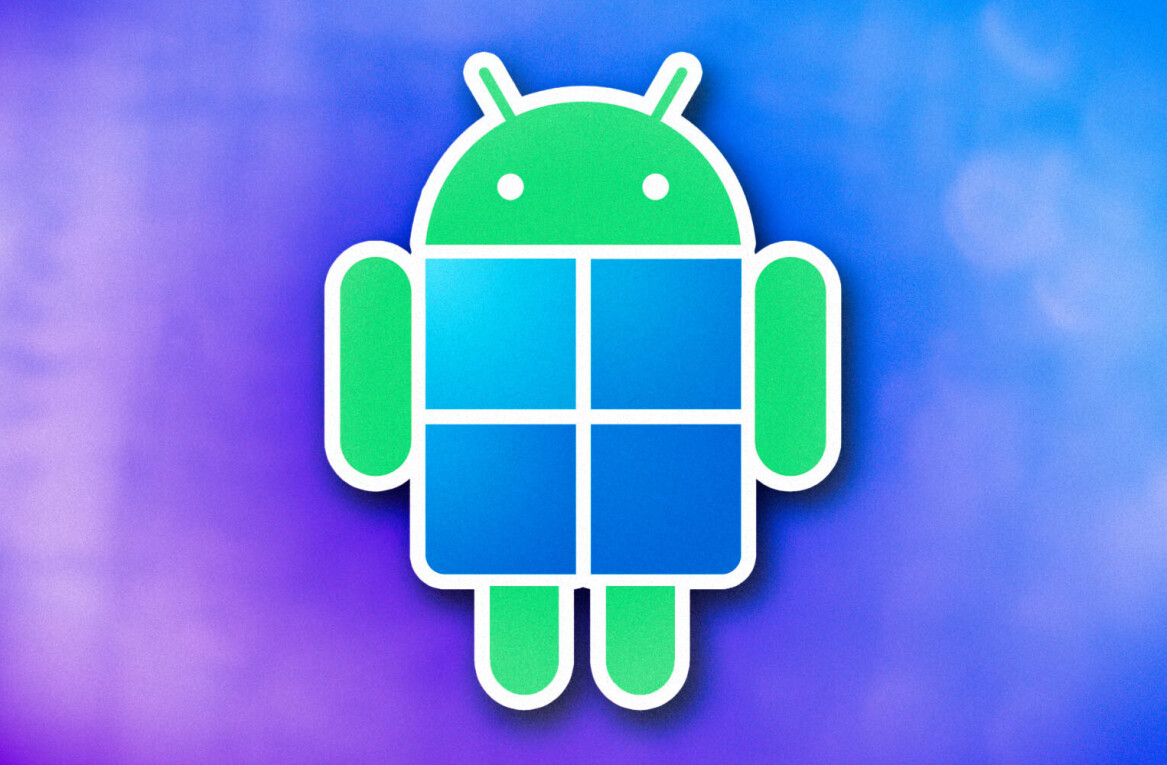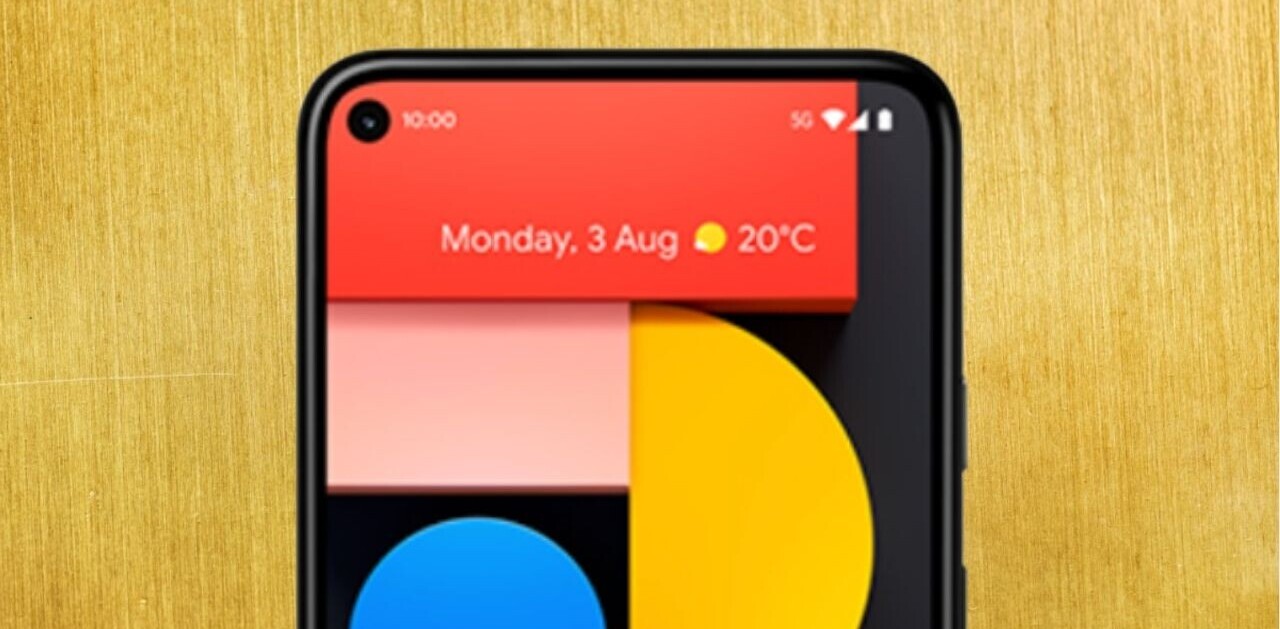
If you’re reading this, there’s a fair chance you own either an iOS or Android mobile device.
News emerged this week that Android now has almost half of the global smartphone market sewn up, whilst Apple – the world’s number one smartphone vendor in terms of units sold – has almost a fifth of the market with its iOS. This means that between them, Android and iOS account for well over two-thirds of the global smartphone market.
Of course, it’s easy to explain Android’s dominance in the smartphone market. As a free, open-source platform, it is used across multiple devices by many manufacturers, including HTC, Samsung, Acer, Sony Ericsson, LG, Motorola, among others.
With that in mind, it probably came as little surprise when Google announced back in June that it is activating half-a-million Android devices every day. This figure includes tablets too, but that’s still a phenomenal strike-rate, and it’s indicative not only of the popularity of Android with manufacturers and consumers alike, but also how smartphones are becoming an integral part of society.
However, Android has been in the headlines for other reasons of late. The operating system is in the middle of multiple patent disputes which have led many to question the viability of Android in the long term – if manufacturers have to pay to use Android, then a big part of its appeal will vanish.
Back in May, we reported that HTC is apparently paying Microsoft $5 for every Android handset it sells. Whilst this was the first time an actual monetary value had been placed on its patent fee, it had been long established that Android was probably costing manufacturers money. Last October, Microsoft CEO Steve Ballmer was quoted as saying: “Android has a patent fee. It’s not like it’s free.”
Last month, we reported that Microsoft was also pressurizing Samsung into paying $15 for each Android handset it released. But it’s not just Microsoft looking to get a share of Google’s spoils, Apple and Oracle have been circling the search engine giant too, and this week the war went very public.
Google had remained fairly quiet on the patent situation. But in an official blog post this week, Google’s Senior Vice President and Chief Legal Officer, David Drummond, publicly lambasted Microsoft, Apple, Oracle and other companies for initiating “a hostile, organized campaign against Android, waged through bogus patents”. Drummond continued:
” A smartphone might involve as many as 250,000 (largely questionable) patent claims, and our competitors want to impose a “tax” for these dubious patents that makes Android devices more expensive for consumers. They want to make it harder for manufacturers to sell Android devices. Instead of competing by building new features or devices, they are fighting through litigation.”
If you’re confused about the whole situation, then it’s worth taking a step back to see how we got to where we are today. Android is massive, and its competitors clearly want to curtail its domination. And if you’re wondering why Microsoft and others are looking to gain from Google, this guide should hopefully help.
Firstly, let’s take a quick look at how Android started…
A potted history of Android
Android, Inc. was co-founded by Andy Rubin, Rich Milner, Nick Sears and Chris White way back in 2003. In a 2003 interview with BusinessWeek, two months before incorporating Android, Rubin noted that there was great potential in developing smarter mobile devices that are more aware of its owner’s location and preferences. “If people are smart, that information starts getting aggregated into consumer products”, said Rubin.
Despite this vision, Android Inc. didn’t reveal too much about what it was actually doing, other than it was working on software for mobile phones. As BusinessWeek noted in 2005: “Android (www.android.com) has operated under a cloak of secrecy, so little is known about its work.”
But enough was known by Google to buy the company in August 2005, making Android Inc. a wholly-owned subsidiary of Google Inc. And it was at Google that Android accelerated, with Rubin leading a team in developing a platform for mobile devices, powered by the Linux kernel, and the first Android device was released in September 2008 – the HTC Dream 1. But it was the Linux kernel aspect of Android that would later cause problems for Google and Android.
Microsoft and Linux
Without going into too much detail on the Linux kernel, it is an operating system kernel (the main component of most computer operating systems) which was first released in 1991. It is a prominent example of free and open-source software (FOSS).
Now, it has long been known that Microsoft has regarded Linux-based operating systems (such as Android) as infringing on its intellectual property. According to a Fortune report way back in 2007, Microsoft’s Steve Ballmer noted that the main reason that free software is of such high quality is because it violates over 200 Microsoft patents.
As far back as 2007, it was estimated that over half of all companies in the Fortune 500 were using Linux in their data centers, including companies such as Wal-Mart, AIG, and Goldman Sachs. And this means that Microsoft has been losing out on a lot of money. Steve Ballmer said in an interview:
“We live in a world where we honor, and support the honoring of, intellectual property”, before noting that FOSS users must “Play by the same rules as the rest of the business. What’s fair is fair”.
The history behind this is worth a story in itself, but this is part of the foundation upon which Android finds itself threatened today.
Google’s gripe
So why hasn’t Microsoft taken on Google directly in the mobile wars? Probably because it’s a lot easier for Microsoft to pursue Android handset-makers than take on the might of Google. Also, by targeting the devices themselves, it puts a price on a big rival platform that was otherwise free to use – Google doesn’t charge manufacturers to use Android.
Microsoft is striving to gain traction in the smartphone market with Windows Phone 7, and it’s just entering the tablet market too. If Microsoft pursues Android handset manufacturers for patent fees, Android won’t be as an attractive option for manufacturers. Microsoft has put a great deal of thought into this, and it’s claimed that it now makes more money from HTC’s Android phones than it does through its own Windows phones. That really is incredible.
You may have seen Apple and Oracle arrive on the scene too, and wondered what their beef with Google is. Well, when Oracle – a database software company – acquired Java through its buyout of Sun Microsystems, this then gave the company the rights to sue Google over 7 Java patents it claims Android infringes upon. Google may have to pay out billions, and also license the patents for future use on Android. But there’s much more to this story than a a handful of patent infringements.
CPTN Holdings is a consortium of technology companies that include Microsoft, Apple, Oracle and EMC Corporation, and it secured a portfolio of 882 patents that were sold by Novell when it was acquired by Attachmate. And then there’s the Rockstar consortium too, which also counts Apple and Microsoft as members, which recently won the auction of 6,000 patents/patent applications from the bankrupt Canadian telecoms company Nortel.
Indeed, this was the thrust of Google’s David Drummond’s rant earlier this week, that its competitors are colluding against it with a view to forcing up the cost of Android:
“They’re doing this by banding together to acquire Novell’s old patents (the “CPTN” group including Microsoft and Apple) and Nortel’s old patents (the “Rockstar” group including Microsoft and Apple), to make sure Google didn’t get them; seeking $15 licensing fees for every Android device; attempting to make it more expensive for phone manufacturers to license Android (which we provide free of charge) than Windows Phone 7….patents were meant to encourage innovation, but lately they are being used as a weapon to stop it.”
Whilst the actions of Microsoft, Apple, Oracle et al may well have been an armory-building exercise against the might of Google and Android in the mobile space, Google too has been engaged in similar patent-acquiring games in the past. Indeed, it recently secured over a thousand patents from IBM itself.
The future for Google and Android
It’s quite sad to see companies that have always been – and continue to be – innovative in their respective fields resort to patent acquisition tactics to get one-up on competitors. In fact, it’s a ridiculous state of affairs, but patent litigation is everywhere at the moment.
The public rant from Google’s David Drummond was a very telling sign though. Google is genuinely concerned about the future of Android, and it will have to fight aggressively now if Android is to remain a viable platform for mobile phone manufacturers.
As we saw with the recent acquisition of IBM’s patents, Google is having to play the game until serious patent reform comes into effect, which isn’t likely to be any time soon. As Drummond noted:
“We’re also looking at other ways to reduce the anti-competitive threats against Android by strengthening our own patent portfolio. Unless we act, consumers could face rising costs for Android devices — and fewer choices for their next phone.”
Whichever way you look at it, it is quite bizarre that Microsoft is earning more from Android than Google is (directly, at least), and from its own mobile operating system.
But stranger still, is why Google wasn’t able to see this coming. When it procured Android Inc. back in 2005, and built the mobile OS we see today, it had plenty of opportunities to design with patent litigation in mind. Publicly pillorying its competitors is a sign that it’s feeling the heat, and because it was relatively late into the smartphone market, it has been left flat-footed because it doesn’t have the patents to match the likes of Microsoft and Apple.
There will likely be many more twists and turns in the patent saga. The Department of Justice (DoJ) is already investigating the acquisition of the Nortel patents by the Rockstar consortium, to see whether it had anti-competitive motivations, and it has already forced CPTN Holdings to license its patents on fair terms. So this could still go in many different directions.
Android is killing it in the smartphone market, which makes it a prime candidate for others with vested interests in the same market. The Goliaths of the tech industry will continue to fight it out for a while yet, but the future’s not looking too rosy for Android just now.
Get the TNW newsletter
Get the most important tech news in your inbox each week.







